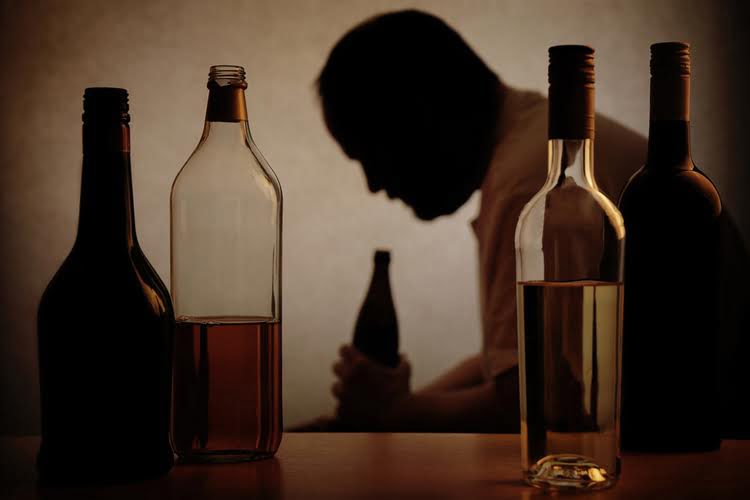Content
However, the word is often used in different ways in different contexts. Many 12-step programs suggest that sobriety means total abstinence—never using the substance ever again. “Signs of alcohol withdrawal syndrome.” Medical News Today, July 5, 2018.
Still the Farleys, but not the same – Spectrum News 1
Still the Farleys, but not the same.
Posted: Thu, 28 Sep 2023 14:29:00 GMT [source]
During treatment, some people will embrace the new, healthy habits they’re learning. They’ll rediscover favorite hobbies that were left in the past and will likely pick up new ones as well. They will embrace action throughout the treatment and recovery process. Studies of outcome of addiction treatment may use one term or the other, but they typically measure the same effects. Still, some people in the addiction-treatment field reserve recovery to mean only the process of achieving remission and believe it is a lifelong enterprise of avoiding relapse. Recovery suggests a state in which the addiction is overcome; clinical experience and research studies provide ample evidence.
AA isn’t the only way to change your relationship with alcohol. Here are other options
You can start working on projects or interesting hobbies that can keep you occupied. While you do not have to be busy every minute, the important thing is that you are moving forward and learning how to live your life without alcohol. Dr. Okhifun is a passionate medical doctor, with over five years’ experience as a general practitioner. His passion for medical education led to his journey in medical writing. He also serves as medical coordinator and content writer for Gerocare Solutions, for which he also volunteers as a health advisor/consultant for the elderly. Many were pushing for people in recovery and people who use drugs to be seen as a constituency in their own right.
- • Connection—being in touch with others who believe in and support recovery, and actively seeking help from others who have experienced similar difficulties.
- Alcohol withdrawal can be an unpleasant process, but there are things you can do to prepare.
- Burrell said the farm’s staff will help guests with an individual path to recovery, recognizing that there’s no “cookie cutter” approach to helping someone get back on their feet.
Religious or non-religious alcohol support groups can offer some much-needed assistance to affirm one’s resolve to quit drinking for good. If you’re feeling discouraged in the first 30 days because you haven’t yet experienced the benefits of life without or with less alcohol, we understand. It can be frustrating, but it’s an incredibly common https://ecosoberhouse.com/article/psychological-dependence-on-alcohol-physiological-addiction-symptoms/ and necessary chapter in this journey towards alcohol recovery. You can and will get through it, and some relief is right around the corner. Here’s advice from clinicians about how to get through this challenging period. The second reason you might feel more anxious is because quitting alcohol can physiologically cause short-term anxiety.
What Are the States of Alcohol Recovery?
If you are in need of help for alcohol addiction, please call us or complete the short form for confidential support and assistance with entering treatment. Alcohol withdrawal symptoms can include shaking, sweating, headache, nausea, and other physical symptoms. You may also experience mood and behavioral symptoms like agitation, irritability, or anxiety. The alcohol withdrawal timeline varies, but symptoms may begin a few hours to a few days after you stop drinking. Recovery does not merely focus on the person’s addictive behavior, but also involves their whole life—mind, body, spirit, and community. As such, recovery should include a wide variety of services and support programs that will address family, housing, self-care, education, employment, and other life concerns.
Not to mention, the lasting health benefits to the immune system, liver, blood pressure, mental health and much more. Furthermore, for people with histories of eating disorders, limited food options and insufficient nutritional guidance can trigger relapses. Rehabilitation programs are meant to help individuals re-learn how to navigate the world as sober individuals, and become caretakers of our bodies again. These programs must then also teach individuals how to re-define a healthy relationship to food. We publish material that is researched, cited, edited and reviewed by licensed medical professionals. The information we provide is not intended to be a substitute for professional medical advice, diagnosis or treatment.
Mild Symptoms
Remember that the worst of the symptoms typically wear off after 72 hours. In some people, symptoms may continue for a few weeks after their last drink, but they will lessen over time. First, it’s important to understand the signs of both acute and post-acute withdrawal. Acute alcohol withdrawal can occur after an extended period of heavy binge drinking, and usually takes place within the first week of quitting alcohol.
- Therapy helps alcoholics identify and deal with stress that increase their urges to drink.
- Some definitions of sobriety call for complete lifelong abstinence while others focus on developing coping mechanisms that can reduce harm with the understanding that setbacks are common.
- Nevertheless, experts see relapse as an opportunity to learn from the experience about personal vulnerabilities and triggers, to develop a detailed relapse prevention plan, and to step up treatment and support activities.
- They may decide, for instance, that they’re going to seek treatment sometime in the next six months but won’t set a definite date.
- Of all stages of alcoholism recovery, this one is the longest – studies show it can last up to five years.
We might share your note (with your permission) in a future newsletter. People who are interested in alcohol addiction recovery should call us. This 24/7 hotline can refer you to a qualified treatment facility, and it is free to call.
A survey of over 500 British antidepressant users found that most experienced severe withdrawal effects when they tried to stop, yet few received any help to come off safely. Vodka eyeballing and drinking a borg are high-risk drinking trends that put university students at risk of harm. Identify alcoholism recovery timeline other factors in your life—relationships, work—that can help take the focus off addictive behaviors. • Identity—shifting towards a new, positive view of oneself, one more aligned with one’s deeper values and goals, one built on self-confidence gained by acquiring new skills and new behaviors.


